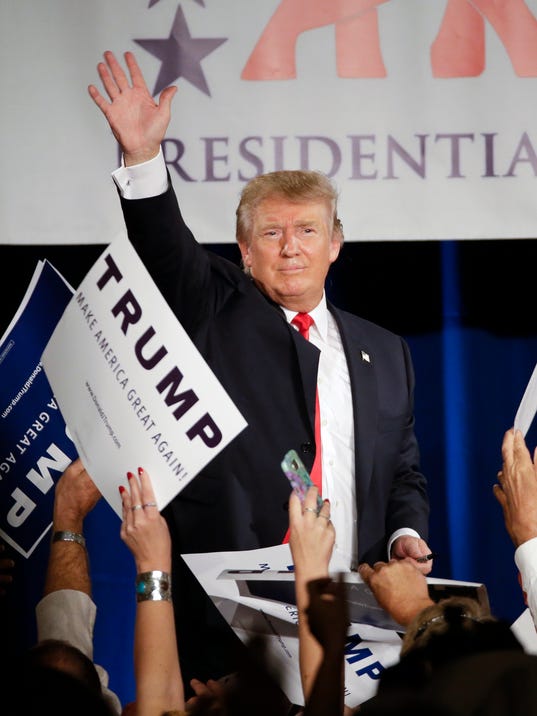
An important part of the modern presidency is the ability to deal coolly with tough questions from the White House press corps and diplomatically with other world leaders.
But in recent weeks, Donald Trump has been acting more like the angry, impulsive president portrayed byDwayne Johnson in Saturday Night Live's "The Rock Obama" skits. Trump has attacked two of the nation’s most popular and influential television journalists, Fox News’ Megyn Kelly and Univision’sJorge Ramos . And he has lashed out against the governments of China and Mexico.
Despite these outbursts — or perhaps because of them — Trump has risen to the top of polls in the race for the Republican presidential nomination, confounding pundits and deeply worrying the GOP establishment.
What his actions haven’t done, however, is position him to win the presidency, or to govern effectively were he somehow to get elected. In fact, they have done just the opposite by offending many of the people whose support he would need, needlessly provoking fights with important nations and generally coming off as unpresidential.
Are American voters really looking for a president who spends his evenings sending out nasty and petty tweets about journalists rather than, say, working on ways to defeat the Islamic State? That’s exactly what Trump did when Kelly — whom he criticized for her "unfair" questions during last month's first Republican debate — returned from a summer vacation.
Are Americans really looking for a president whose security detail temporarily ejected a journalist (Ramos) who was attempting to ask about his unworkable immigration plan? Or a president who barred Des Moines Register reporters from some of his events because he didn't like an editorial? (The Register, like USA TODAY, is owned by Gannett.)
The answer is almost certainly not. America once had a president who became consumed with compiling enemies' lists and vilifying his opponents. His name was Richard Nixon .
The point is not that journalists such as Kelly and Ramos need any special sympathy or protection. It’s that a president, a nominee, even a front-runner for the nomination once the field has narrowed, has to do more in the face of hostile questioning than simply resort to name-calling.
Tough questions test a candidate's coolness under fire. They can provide more information about what's on voters' minds than a candidate might receive from sycophantic aides. They go with the territory.
If there was one lesson from President Obama ’s 2012 re-election, it was that the next GOP candidate would have to do better with women and minority voters, particularly Hispanics. Trump's comments about Mexican immigrants have left him with an abysmal 14% approval rating among Hispanic voters, according to Gallup. And his ad hominem attacks against Kelly and a career full of chauvinistic comments about women are hardly likely to endear him to female voters.
Positions such as building a massive wall along the Mexican border or imposing a tariff on Chinese goods are designed to rile up frustrated, angry voters. They will not help enact actual policies or deliver results. The Islamic State isn't going stop its reign of terror because President Trump sends out some insulting tweets about its leaders.
Trump knows that in a splintered race for the GOP nomination, he can maintain a lead with as little as 20% support in the polls, which he can get to by saying outrageous things and by proposing impractical policies. But the further along he gets in the process, the more his antics will work against him.




No comments:
Post a Comment